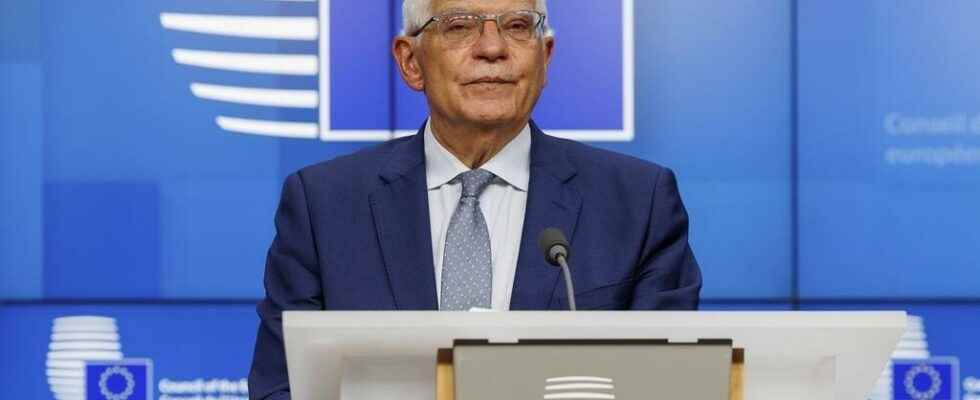The Russian enclave in the Baltic Sea, a kind of militarized base for the Russian fleet, is likely to become another abscess in fixing tensions between Europe and Russia, as the Kremlin threatens Lithuania with reprisals for blocking goods at the border. Josep Borrell, the head of European diplomacy, maintains that Lithuania has only complied with EU sanctions.
With our correspondent in Brussels, Pierre Benazet
The High Representative of the European Union for Foreign Affairs and Security Policy takes a stand in the middle of the growing conflict between Europe and Russia over Kaliningrad. Unsurprisingly, he approves of Lithuanian restrictions on the transit of certain goods to the Russian enclave. These are in no way an initiative of Lithuania, underlines Josep Borrell, contrary to what Moscow and the governor of this province claim.
The head of European diplomacy insists: according to him, the limitation of economic exchanges and the transit of goods to Kaliningrad is only the direct consequence of the sixth package of European sanctions against Russia, within the framework of the offensive carried out in Ukraine for four months.
According to Gabrielius Landsbergis, the Lithuanian Foreign Minister, the blocked goods are steel and iron metals, contrary to what the governor of the Russian enclave claims, who refers to construction materials, technological goods and coal.
During the fall of the Third Reich, the northern half of East Prussia fell into the hands of Moscow, but the former Königsberg – renamed Kaliningrad – was cut off from Russia by the territories of Poland and Lithuania. For Moscow, this is an internal transit. But the fact remains that the goods pass through Belarus and Lithuania.
The latter country therefore applies the sanctions of the European Union. The replies envisaged by the Kremlin are obviously provocative since Lithuania is bound to mutual defense agreements by both NATO and the EU.
